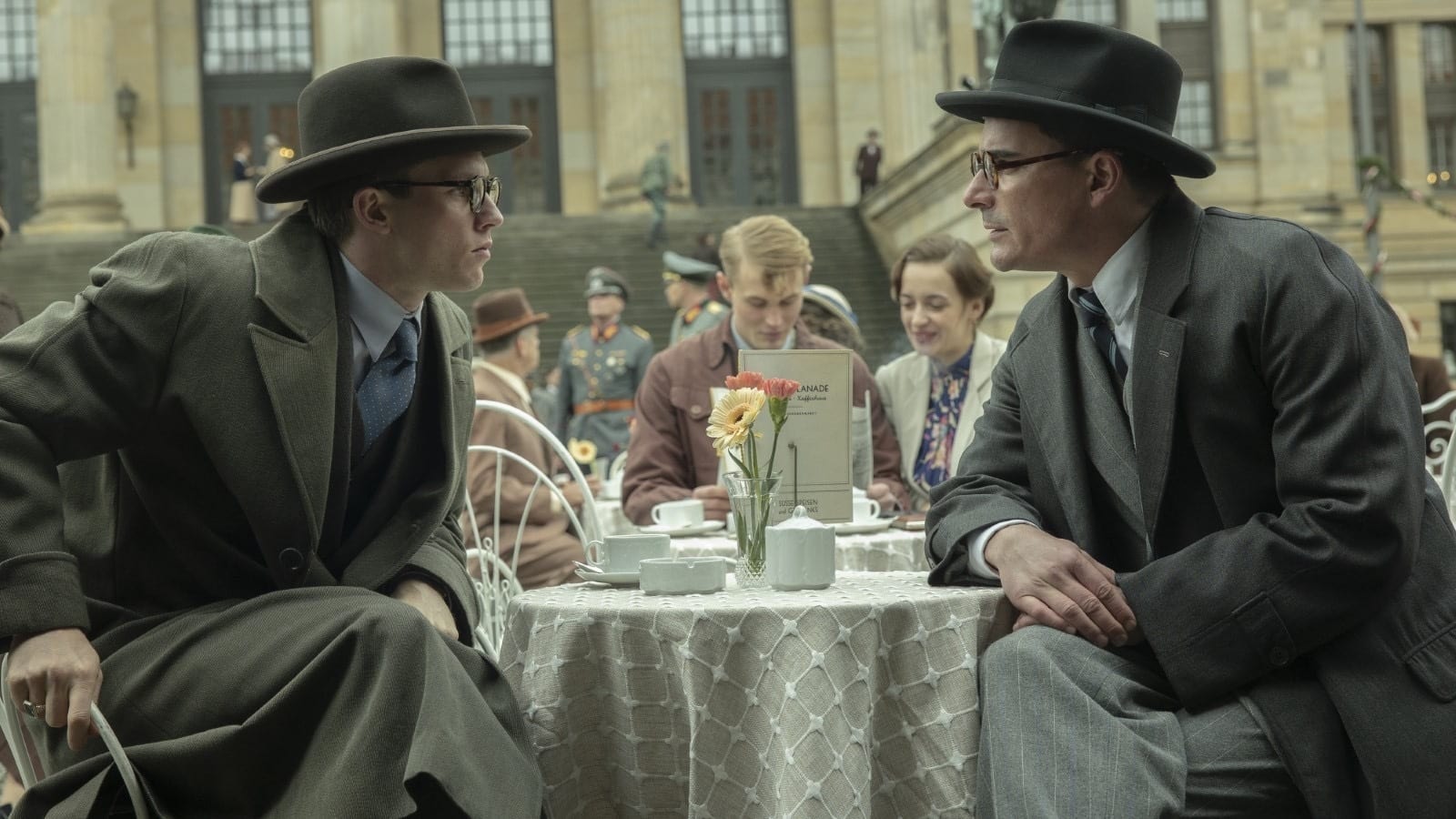
"Munich: Edge of War" is directed by Christian Schwarzoff and stars Jeremy Irons, George MacKay, Jessica Brown Findlay, Robert Bathurst 's drama, which shows a political tension.
The film begins with a young people's party. At the banquet in 1938, little Paul and Franz were good friends, and little Paul also had his own girlfriend. They drank champagne on the grass and talked about their ideals in life. However, the political situation soon became tense and Europe was on the brink of war. After Hitler came to power, he did not immediately announce the decision to invade Czechoslovakia, but only put forward a battle plan at the senior officers' meeting. And Chamberlain and Franz do not know, but also to participate in the Munich Conference.
Paul Jr., a German diplomat, was a righteous man who was chosen to serve as Hitler's interpreter. Before the meeting, he was very nervous, because he wanted to steal certain information, but Hitler borrowed a watch from him and let him participate in the meeting of the required number of people. Little Paul knew about Hitler's invasion plan, hid the military's documents, and went out under the pretext of being called by Hitler. He thought his actions aroused Hitler's suspicion, but in fact Hitler just returned his watch in front of many people and let him breathe a sigh of relief.
Little Paul met Franz privately and told him that Germany was planning to invade Czechoslovakia. He asked Little Paul to help and persuade British Prime Minister Chamberlain not to let Chamberlain sign the peace treaty, otherwise Britain would still be invaded by Germany. Franz had a premonition that the matter was important and could not explain it to Chamberlain, so he took little Paul to see Chamberlain. Although little Paul showed Chamberlain the top-secret military documents he stole, he also explained Hitler's character and strongly advised Chamberlain not to sign a non-interference treaty, but Chamberlain was arrogant and did not take it seriously, but doubted little Paul's motives .
Little Paul was very angry, but he couldn't influence Chamberlain's decision. He decided to do it himself, shoot Hitler, and eliminate the warmongers for the Europeans. When he met Hitler, he secretly drew his pistol and hid it behind his briefcase while he and Hitler were alone in the office. It's just that Hitler asked him to tell his true thoughts, and he said it, saying that the people did not want to fight, and they did not want to fall into a battlefield full of war. But Hitler said that people need education, they need guidance, they need to be led to strive for greater freedom, and of course the greater freedom he said is aggression.
Little Paul's hand holding the pistol trembled, but he never had the courage to pull it out. At this time, German officers came in to report the situation. Little Paul took the opportunity to hide the pistol in his arms, but Hitler didn't notice it. He patted him on the shoulder and said that he had to correct his thinking.
Chamberlain handed Franz the top-secret military documents that Paul Jr. brought to him, and asked Franz to destroy it. Unexpectedly, Franz was just hiding in his drawer, but he didn't expect to be found by the German officer, and this German officer, Paul and Franz were all good friends, but each had his own master. A member of the SS. The officers knocked Franz down and took the papers. Franz had a hunch that something was wrong, so he would find little Paul and explain the situation. However, little Paul was safe at that time, and Franz and Chamberlain returned to the UK smoothly. There is only one reason, that is, the German officers did not hand in the information collected from Franz's residence, otherwise, none of them would be able to leave.
The tense situation eased, but it was only the ease of interpersonal relationships, and the war situation intensified. A year later, Chamberlain stepped down and Hitler officially began the war of aggression.
In Munich, various forces competed to appear, adding a strong sense of political tension to the film. Franz represented the interests of the United Kingdom, and Paul Jr. represented the interests of the German people, as well as their German officer friend. It was a bit crazy, but he still took into account the feelings of friends at a critical moment. Hitler represented the strength of the SS, while Chamberlain represented the enforcer of appeasement. The "Munich Agreement" is precisely the product of the appeasement policy reaching its peak. In fact, it is nothing more than a conspiracy concocted by Hitler.
Or Paul Jr. is right. Only by eliminating Hitler can the war be ended, and the policy of appeasement is only a practice of appeasement. Even if Jr. Paul seriously persuaded him, Chamberlain would not listen to him. The tension in the film is suffocating, but it also proves the truth that those who claim to represent the people are not really representing the people at all. The efforts of Paul and Franz are real and reliable, but they are ignored.